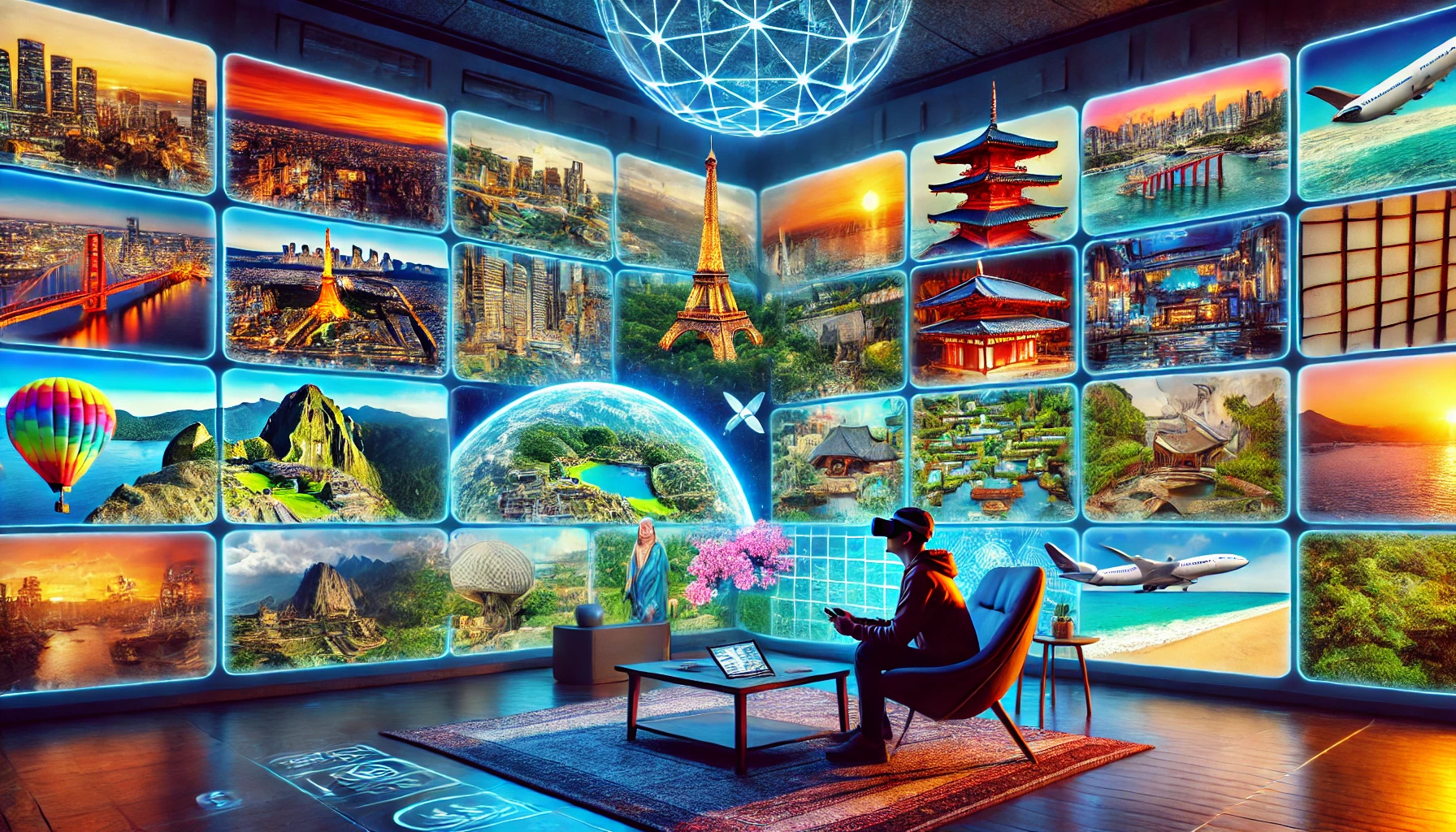Virtual reality (VR) travel experiences are revolutionizing the way we explore destinations. With immersiv bye VR platforms, users can now enjoy realistic simulations of landmarks and cultural events from the comfort of their homes, making travel more accessible and educational.
The Rise of Virtual Reality Travel
Virtual reality (VR) is transforming the travel industry by offering innovative ways to explore destinations without leaving home. Several tech companies have recently introduced advanced VR platforms that provide users with immersive travel experiences. These digital innovations allow users to virtually visit famous landmarks, cultural events, and natural wonders, providing a new dimension to travel exploration.
How VR Travel Experiences Work
VR travel experiences utilize cutting-edge technology to create realistic simulations of various destinations. By using VR headsets and motion controllers, users can virtually walk through historic sites, attend live events, and explore scenic landscapes. This technology leverages high-resolution imagery and spatial audio to create an engaging and lifelike experience, making users feel as though they are actually present at the location.
Benefits of Virtual Travel
One of the major advantages of VR travel is accessibility. With VR technology, individuals who may have physical, financial, or time constraints can explore the world from the comfort of their own homes. Additionally, VR travel offers educational opportunities by providing detailed information about historical and cultural sites in an interactive format. This can enhance learning and promote cultural understanding without the need for physical travel.
The Future of Travel and VR Integration
As technology continues to advance, the integration of VR in travel is expected to grow. Future developments may include even more realistic simulations and interactive features, such as virtual guided tours and real-time cultural experiences. This progression promises to make virtual travel a more integral part of the tourism industry, offering an alternative that complements traditional travel methods.
Industry Reactions and Consumer Adoption
The response from both the travel industry and consumers has been enthusiastic. Travel agencies, educational institutions, and cultural organizations are exploring ways to incorporate VR experiences into their offerings. Consumers are also increasingly interested in virtual travel as a means of previewing destinations, planning trips, or simply enjoying new experiences without leaving home.
Virtual reality travel experiences represent a significant advancement in the way we explore and interact with the world. By making travel more accessible and educational, VR technology is paving the way for a new era of digital exploration. As the technology continues to evolve, we can expect even more exciting developments in the realm of virtual travel, making it a valuable addition to the future of tourism.











